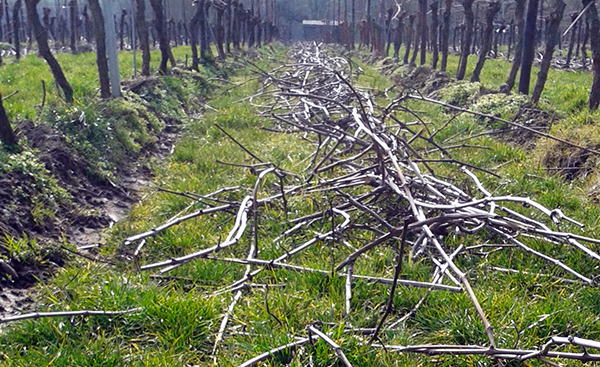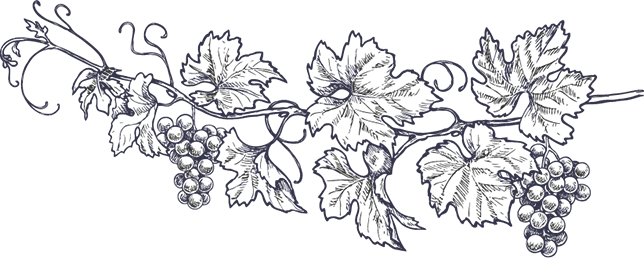
Dead vine wood transformed into medicine
06.02.2020Many other projects worldwide, like the AgriWasteValue project, are looking for ways to use every part of the biomass around us and to avoid waste. This is the case of the VitiValo project, which is a programme for the valorisation of wine-growing waste in the Savoie region as an alternative to open-air burning.
A response to air pollution
Since the end of December 2017, a prefectoral decree has prohibited the open burning of agricultural waste, including that from wine-growing activities, in order to reduce the sources of fine particle emissions in the Savoy territory (a territory subject to numerous episodes of fine particle pollution in winter). However, in the vineyards of the Pays de Savoie located on hillsides and therefore difficult to access, annual wood cutting is traditionally burned on site as the trees are pruned in winter. Savoie also has a strong activity of wine nurseries (70% of French vines are produced there) which also eliminate their wood waste by burning.
The VITIVALO project was therefore launched by the University of Savoie Mont Blanc in spring 2017, in order to develop new, sustainable, wine-growing waste revalorisation sectors in a context of a circular economy, by involving many professional, institutional, public, university and association partners in the region.
Aiming towards Zero Waste
A review of the scientific literature reveals that molecules of cosmetic, medical and agri-food interest are present in these vine woods. Further analysis of the pinot noir shoots from nurseries and the jackfruit and mondeuse blanche varieties of Savoy wines show high levels of resveratrol, a polyphenol present in grapes and wine that has antioxidant properties. The first results of the AgriWasteValue project show the same discovery : resveratrol was found in residues of vines, as well as epicatechin and catechin molecules (used to reduce oxidative stress).
These discoveries allow to reduce waste from the cutting of fruit trees or vines. Indeed, cutting a vine can lead to almost 10kg of wood residues, that are most of time thrown away or left on the ground. Projects like AgriWasteValue or VitiValo are in line with the current trend and need for zero waste and to find solutions with natural and local sources of bioactives.
Want to know more ?
- Discover the first research results of the AgriWasteValue project
- Discover where to find raw material in North-West Europe
Sources :
